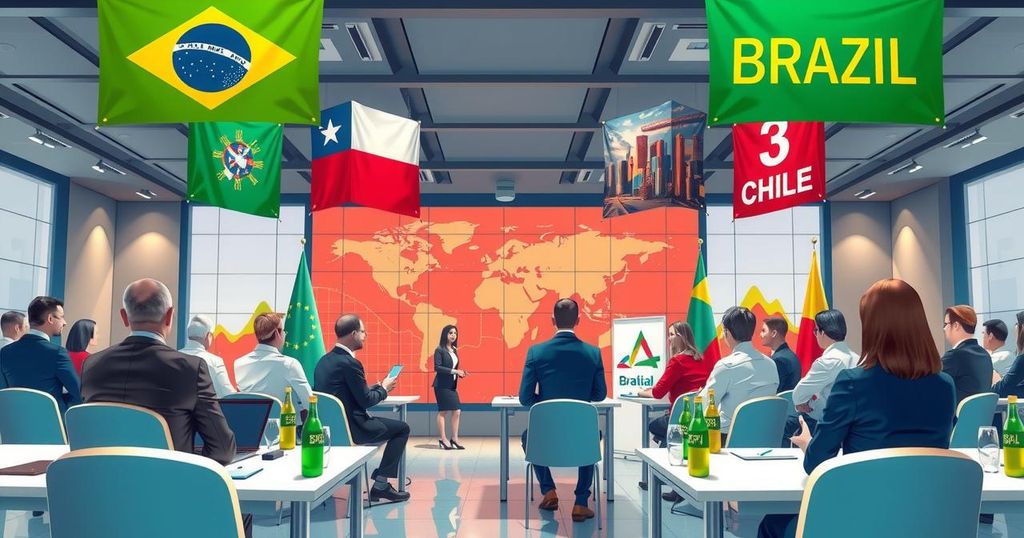Brazil and Chile Foster Economic Collaboration at Business Forum

The Brazil-Chile Business Forum highlighted a collaborative approach to enhancing trade relations between the two nations, with Presidents Lula and Boric emphasizing mutual economic benefits and social policies. Significant agreements were signed, covering various sectors, demonstrating a commitment to deeper integration and cooperation.
On April 22, President Luiz Inácio Lula da Silva concluded the Brazil-Chile Business Forum in Brasília, where he was joined by Chilean President Gabriel Boric. Hosted by the National Confederation of Industry (CNI), this event provided a venue for leaders from Brazil and Chile to converse on enhancing trade relations across various sectors. The focus was clear—strengthening bilateral ties to benefit both nations economically.
In his closing remarks, President Lula emphasized the importance of equitable trade agreements, stating, “A good deal is one where both countries profit.” He further articulated the idea that, as presidents, their role is not to engage directly in transactions but to facilitate environments for business leaders to thrive. Both Lula and Boric acknowledged the need for collaboration while prioritizing national interests.
President Lula also took the opportunity to underline how effective social policies contribute to economic growth, which, in turn, can lead to increased tourism. He noted, “Over the past two years the poorest have had an income growth of 10.7%.” This development is viewed as a catalyst for more Brazilians traveling to Chile, hence bolstering the tourism economy and encouraging circulation of money between both countries.
Meanwhile, President Boric reaffirmed the security that both nations can provide to investors, noting significant trading relations, with Brazil recognized as Chile’s third-largest trading partner after China and the United States. He further highlighted the Capricorn Bioceanic Corridor, a project linking Brazilian ports to Chilean ones, aiming to enhance regional cooperation. Completion is expected by 2026, in time for Lula’s current presidential term.
Mario Cezar de Aguiar, Vice President of the CNI, reflected on the event’s sentiment, indicating that joint leadership and collaboration between the private sector and the government are crucial. He expressed confidence that through ongoing dialogue, both nations could navigate global uncertainties while pursuing shared economic goals. Rosario Navarro, from the Chilean Society of Industrial Promotion, echoed this sentiment, urging for actionable steps towards deeper integration.
During this official state visit, 13 bilateral agreements were signed covering areas such as public security, technology, and agriculture, exemplifying the multitiered nature of Brazil-Chile relations. Their economic interdependence is evident with increasing trade surpluses—data from early 2025 showed a trade volume hitting USD 2.7 billion. Brazil’s exports, notably crude oil and meat, have topped the charts while Chile’s main exports comprise salmon and wine.
Overall, Brazil and Chile are navigating a promising phase of cooperation, sharing the belief that regional economic integrations will only enhance their bilateral ties further. Both nations are looking towards the future with optimism, eyeing vast opportunities in science, technology, and potential areas of collaboration in defense and beyond.
The Brazil-Chile Business Forum underscored significant opportunities for bilateral trade and cooperation, facilitated by both Presidents Lula and Boric. Their emphasis on equitable trade agreements highlights a commitment to mutual benefit, while discussions on social policies and infrastructure projects signal a vision for economic growth and improved quality of life. The forum also marked the signing of 13 agreements, paving the way for a deeper partnership aimed at bolstering regional ties and economic stability.
Original Source: www.gov.br







